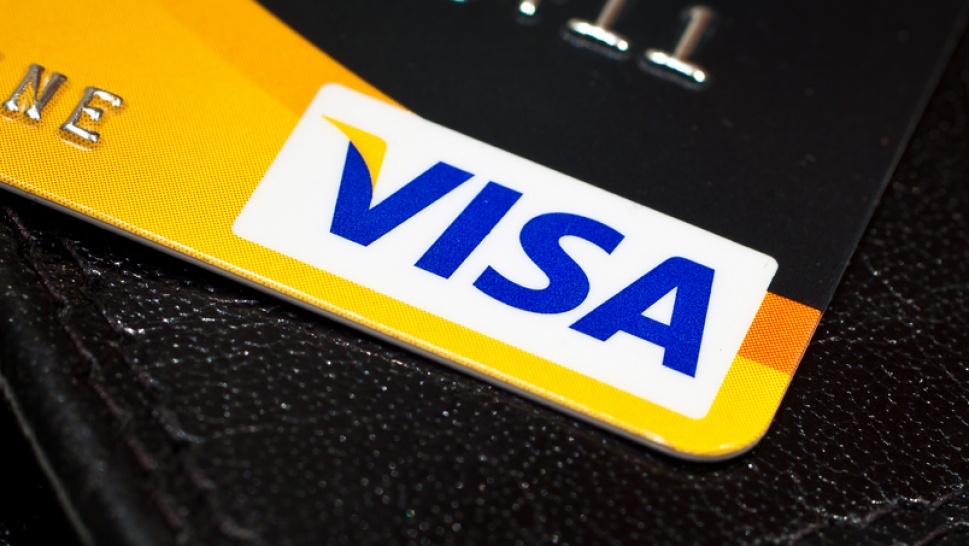Every year that goes by, a new way to make purchases comes out for the enjoyment of the public. Most generations alive today knew about debit and credit cards when they were young. In fact, what was seen as futuristic and incredibly convenient today, such as debit and credit cards, is now old school, since smartphones and applications have replaced plastic. Zachry Floro, from Business insider, details (1): “A new report from Javelin Strategy & Research says cash is dying, with the percentage of purchases made in cash falling to 27 percent. Javelin expects this number to drop even further, to just 23 percent in the next five years.” This trend has been ongoing for years, and some companies are delighted about it.
Financial companies are among the first to encourage the change in consumer habits, as cash is their main competitor: if a cashless economy were to arise, they would all massively increase their revenue. Hence Visa’s initiative to push the trend harder and faster. Along with the financial reward of 10 000 dollars for 50 lucky participants to the challenge, come a handful of anti-cash arguments. According to Visa (2), cash is expensive to handle, time-consuming, dangerous to store, and archaic. But Paul-Martin Foss says (3): “Cash is the ultimate means by which consumers can restrain the behavior of governments and banks, which is why governments and banks are doing everything they can to do away with cash.” So, should we take the bait?
Most of these arguments are true, however they are also one-sided. They reflect only the positive sides of a cashless economy and, most of all, they will become less and less true in time. It is important to understand that cash is a completely different segment of the economy, aside from virtual money. In other words, there isn’t much difference between the dollars you have on your American Express card, and those you have on your Visa card. The dollars you have in your pocket, however, you are the only one to control. Jim Leaviss writes for the Telegraph (4):”if notes and coins were abolished and the only way to hold money was through a government-controlled bank, there would be no escape.” With cash, no banking authorizations, no server clearance, no percentage to the bank, and no State surveillance. But if cash disappears, that freedom is gone.
Once that happens, clients are at the mercy of banks and governments. And the first thing which is likely to happen, is that rates will go up. Because the alternative of cash will be gone, financial companies will be free to dictate whatever prices they wish, in a formal or informal cartel. Businesses will also have no choice but to follow whichever policies are designed by their payment partners, who will control their entire cash flow. In the wake of Australia’s advanced race towards a cashless society, Laura Newton reported the woes (5) of Alex Dowd, an Australian shopkeeper who has experienced the reform : “Alex Dowd, co-owner of Sydney bars Tios and The Cliff Dive, said the cost of going cashless had become a financial issue for his businesses. Any business running Eftpos machines are typically charged a surcharge of between 1.3 per cent and 1.5 per cent.” The increased rates have already occurred in Australia, where cash still exists. The abolition of cash would likely boost rates further still.
Shops and businesses should also expect increased control from third parties in a cashless economy. Governments are much in favor of going cashless, as it would greatly increase their control and monitoring capacities. “Nobody has a way of going into the economy and counting how many bills are out there and the value of those bills,” says (6) Daniel Wilson, an economist with the Federal Reserve Bank of San Francisco. “We don’t know exactly how many cash transactions are occurring on any given day.” A power gap that governments would love to close, surely.
The risk of giving payment companies such as Visa these new and unprecedented levels of power is a long-term one. But hindsight on the cashless evolution of societies shows a steady trend, with some countries having reached extremely advanced levels, already. No doubt will economists and civil-liberties activists keep a close eye on Visa’s Cashless campaign, in the weeks and months to come, to assess whether businesses and citizens adhere to what would be a financial mother lode to some and a dystopian catastrophe to others.
1) http://www.businessinsider.fr/us/cash-is-dead-2012-6/
2) https://usa.visa.com/about-visa/cashless.html
3) http://mengercenter.org/why-banks-governments-hate-cash-bank-runs/
4) http://www.telegraph.co.uk/finance/personalfinance/comment/11602399/Ban-cash-end-boom-and-bust.html
5) http://www.abc.net.au/news/2017-03-27/what-effects-will-a-cashless-society-have/8363238
6) http://www.bbc.com/future/story/20150724-the-truth-about-the-death-of-cash



Share the News